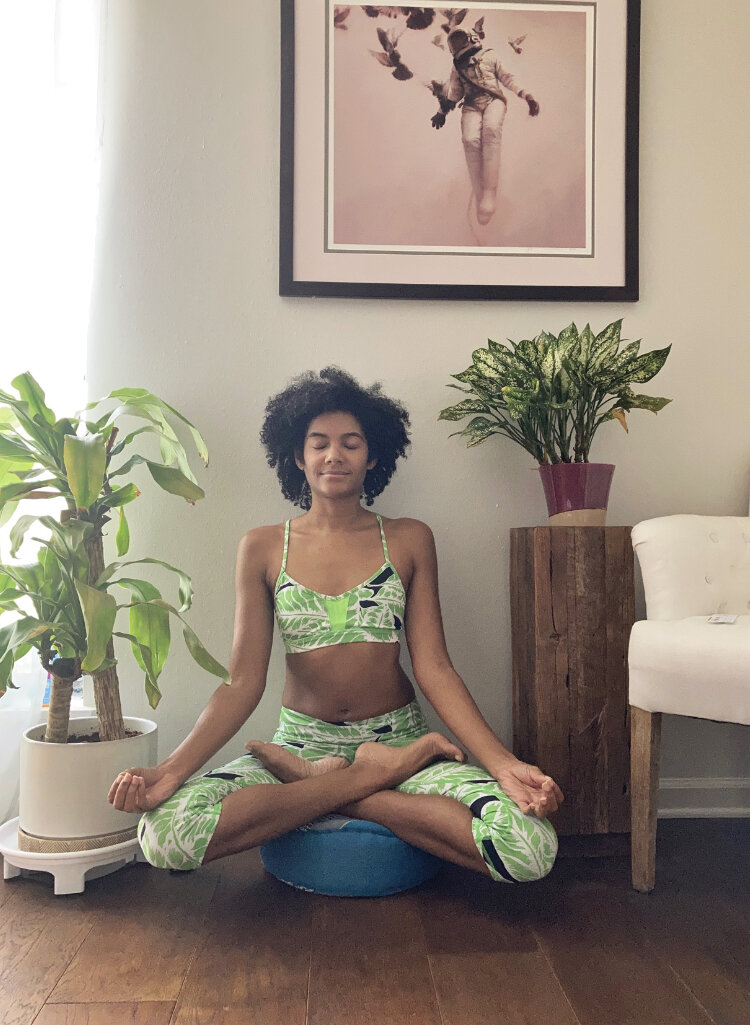10 Things Mindful People Do Differently
By: Dominica Morris
When I first heard about mindfulness I immediately fell in love with this lifestyle and wanted to learn as much information about it as I could. I read all of the books, read all of the blogs, and worked hard on implementing these concepts into my own life. But one thing that really helped me continue with my mindfulness journey was learning the habits of mindful people. Learning this has given me the tools for mindful living and it’s a great reminder on the days when I need to remind myself to stay in the moment.
They Can Disconnect from their Phones
Okay now, this one is hard, like really hard. Especially for me since a lot of my work is done online and from my phone. But disconnecting from phones and social media is something that all mindful people do. It’s often as simple as setting specific limits for when they use their mobile devices. This can be not using their phone first thing when they wake up, or not look at their phone before going to bed (there’s also a lot of good research that proves why). For me, it’s not looking at my phone during dinner and breakfast when I’m with my family. Family meals are a no phone zone, it really helps with being in the moment and giving my husband and son my full attention.
They Pay Attention to their Breathing
Do you notice that when you’re stressed or anxious that your breathing becomes choppy or that you hold your breath without even noticing? Mindful people tend to be able to notice when they’re feeling stressed and can relax their body by scanning it for tension. They then do some deep breathing exercises that can help release said tension and stress. I’ve shared some great breathing exercises on this blog before and it’s such a wonderful tool to practice mindfulness. Being able to check in with your body throughout the day is a great way to learn how you hold certain emotions and feelings within yourself. You can then gently release them with targeted breathwork.
They turn Every-Day Tasks into Mindful Moments
This is probably one of the hardest things to remember. We get so used to doing our day-to-day tasks without even thinking, and when we do we’re usually thinking of the next chore ahead. But being mindful in simple daily tasks will help you learn how to stay in the moment. Next time you’re emptying out the dishwasher, cooking dinner or folding clothes try to be fully engaged in the moment. Don’t think ahead about the next task but stay fully present on the current task. Refocus your mind when you find yourself drifting off or thinking ahead and see how much better you’ll feel.
They pay attention to their thoughts
As much as it is important to focus on your breathing it is equally as important to pay attention to your thoughts. Do you know that saying your thoughts become your reality? Mindful people are keenly aware of this and work hard to be aware of their thoughts at all times. It’s so easy to fall into negative thinking or to use our thoughts to judge others and even ourselves. Becoming aware of our thoughts can help us refocus on positive ones and not let our minds control our emotions.
Tip: A regular meditation can help you learn how to pay attention to your thoughts. Start out by practicing a few minutes a day and then increase your time.
They Practice Self-Care
Mindful people understand that it’s important to care for themselves both physically and mentally. They are able to scan their body to see if they are starting to feel depleted and can then take the necessary steps to recharge. This can be anything from taking a nap, eating well, exercising, or anything else that fosters self-care. I’m the type of person who will keep going and working until I completely exhaust myself. When I started my mindfulness practice, I learned just how important self-care is for my overall wellbeing and stress relief.
They are Fine with Things Not Always Being Perfect
Mindful people understand that perfection doesn’t exist, and while it’s important to see projects through, it’s equally important to let go of the thought that everything needs to be perfect at all times. They know that overly striving for perfection comes from a place of always wanting to control things and understand that not everything is in our control. That we need to learn to accept things and go with the ebb and flow of life. The need for control comes from a place of heightened anxiety and can take you away from the present moment, which is the opposite of mindful living.
While I’m the type of person who strives for perfection, I too had to learn that perfection doesn’t exist and that it’s okay to let go of my overly high expectations of how things should turn out. Once I did this it’s made me a lot less anxious and reduced so much unnecessary stress from my life.
They Spend Time in Nature
There’s nothing more relaxing than spending time outdoors. Whether you’re gardening, spending the day at the beach, or hiking it’s such a mindful feeling being out in nature. And there’s research to back it up. According to the University of Minnesota, nature can soothe stress and pain because we’re biologically programmed to find natural sources such as trees, plants, water, and other natural elements soothing. They also give us a sense of awe and wonder which puts us in the present moment. All of this makes us more mindful. Mindful individuals know this and will use time in nature to recharge and practice mindful living. When we lived in Atlanta, we were surrounded by big buildings, traffic, and noises of city living. We would find time in nature by going to the local parks or driving outside of the city to go on hikes. No matter where you live you can always surround yourself with nature in some kind of way. Whether it’s going to a park or surrounding your home with plants that you care for.
If you want to learn more about the connection between nature and mindfulness, and how you can add more outdoor activities into your life read this article What You Should Know About Nature and Mindfulness.
They Do Not Multitask
A surefire way to take you out of the present moment is to do too many tasks at once. Mindful people know that uni-tasking is the best way to stay present and stress-free. Giving your attention to one activity at a time keeps you in the present moment, allows you to not make mistakes, and gives you time to truly enjoy working on the task at hand.
They Practice Mindful Eating Habits
Mindful people know to not mindlessly shovel food in their mouths. They pay attention to their hunger cues and only eat when truly hungry. This means not overstuffing themselves and stopping eating when they are full. They also are grateful for the food that they have and show this gratitude by either saying a small prayer before eating, sending out gratitude to the universe before a meal, or thanking the food for nourishing their bodies. Mindful people also understand the importance of eating healthy and wholesome foods that will give their bodies energy and the nutrients they need. This refers back to the importance they emphasize on self-care and their keen awareness of their bodies.
They Can Let Go of Toxic Relationships
Whether it’s a job that is overly stressful, a friendship or relationship that thrives on toxicity, or family members that bring negativity into their lives. Mindful people understand to let those relationships go for their own mental wellbeing. They can detach from said relationships because they know it’s best for their overall well-being. Drama and toxic relationships do not foster a mindful environment, and while mindful individuals may feel sad at letting go of those relationships, they also know that finding healthier ones will help them on their mindfulness journey.
Mindful living is something that will encompass all parts of your life from your relationships with yourself and others, how you spend your time, all the way to how you eat. Working on becoming more mindful in your everyday life can have a profound impact on how you view the world. Once I learned how mindful people live their day-to-day lives it made it easier for me to incorporate those things into my own mindfulness practice and made a happier, less anxious person. Let’s keep this conversation going in the comments, have you tried any of these suggested activities I’ve mentioned?










